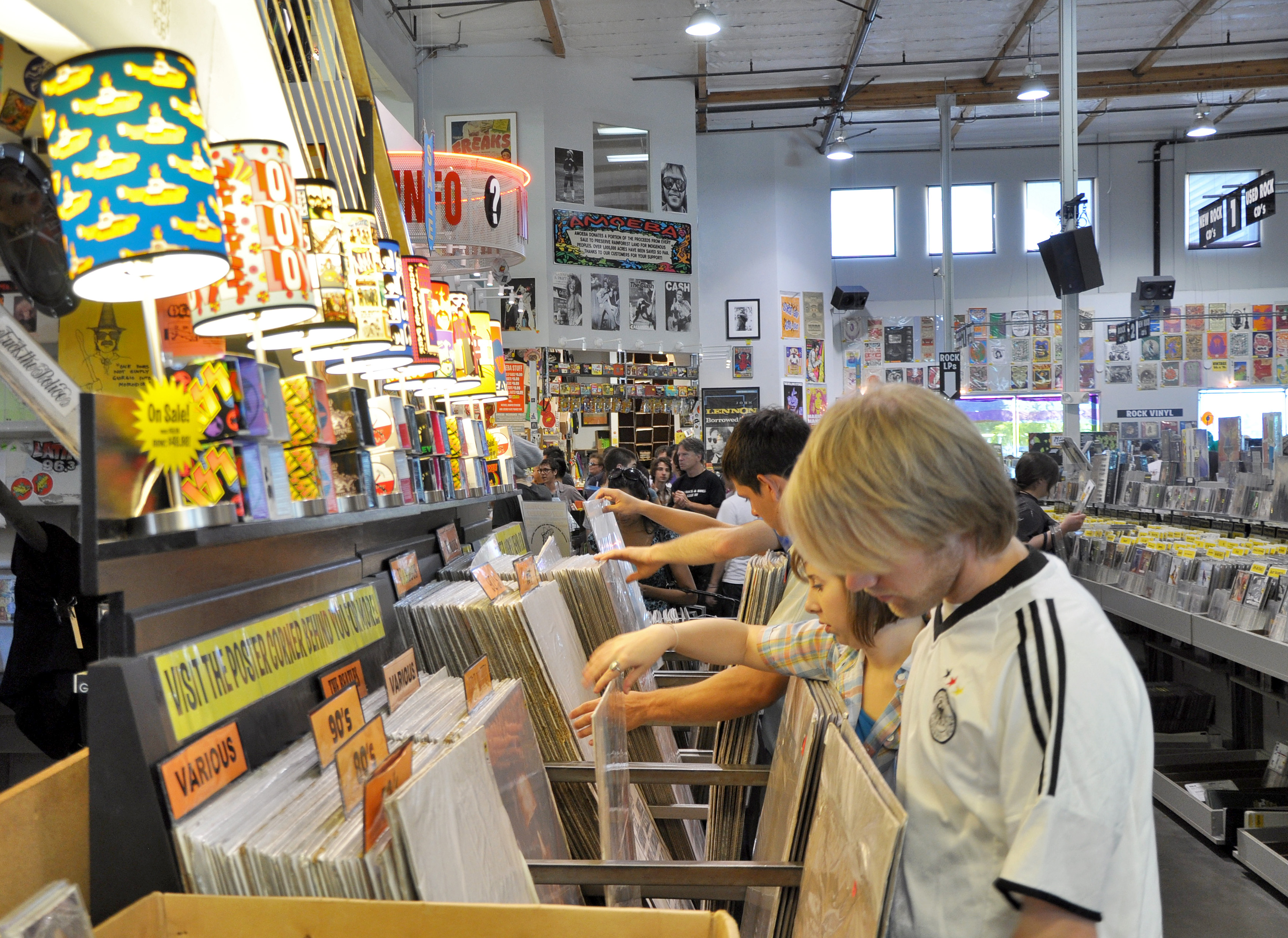Do you remember the first CD you ever bought? I’m not talking about the one you downloaded on iTunes or burned from a friend, but the first one you actually got up off your bum for and went to the record store to get ““ when the click wasn’t from a mouse but from the plastic ring you carefully plucked your shiny new polycarbonate prize from.
I do, and I’m not embarrassed to say that. Because I was living in Germany at the time, it was Eiffel 65’s “Europop” ““ yes, the “Blue (Da Ba Dee)” guys. And though God only knows what happened to them, compact discs are still around today, kept alive by a group of dedicated listeners and the stores that still sell CDs.
From the lines at stores like Amoeba Music on Record Store Day on Saturday, music lovers everywhere are still addicted to that crack of plastic on plastic.
Since 2007, Record Store Day has been celebrating more than 700 independently owned record stores in the United States, and hundreds internationally, by releasing exclusive CDs and vinyl and 7-inch 45 rpm records to those willing to put on some pants and come into the stores in person.
While the day fell on Coachella weekend, the line at Amoeba was still all the way to the end of the store. This year saw releases of limited edition albums like Joan Jett and the Blackhearts’ “I Love Rock & Roll” and exclusive early releases like Dengue Fever’s “Cannibal Courtship.”
Daniel Tures, a manager at Amoeba’s Hollywood location, said he started working in record stores so he could stay a teenager forever. He still remembers the walls of scribbled-on cassette tapes that adorned his home in the ’80s. He said that, despite the rise of digital music, he believes people will always be attracted to physical forms of it, as is evident by the vinyl revival in the past few years. He said that people still come in to Amoeba to find those rare records.
Third-year ethnomusicology student Joseph Lorge said that while he tries to buy records at concerts to benefit musicians, he also likes going to yard and garage sales. What he can’t find among used self-help books and Beanie Babies, he goes to find at stores like Amoeba, where he said he often comes away with more than he intends.
And when Amoeba is too overwhelming, he goes to more intimate stores, such as Origami Vinyl in Echo Park or Freakbeat Records in Sherman Oaks. Amoeba has a list of independent music stores at its checkout counters, because it hopes to help keep the record business alive.
To Tures, the stores are not just about making profits but also building community. He said his favorite part of his job is working with a large group of positive and creative individuals who share his passion for music.
Tures said that, while the Internet has made the music industry more open and fair to musicians who have talent but lack public relations, it should not replace better quality and more nostalgic hard copies of music. And while the Internet is more eco-friendly, Amoeba also does its part by buying or exchanging customers’ old records.
To Tures, listening to an original record is like looking at a real painting ““ digital rendering just doesn’t do it justice. If records are paintings, Amoeba is a museum.
Since Tures quit his doctoral work at UC Berkeley 14 years ago to work at Amoeba, a lot has changed. But the old turntables, frayed records and dangling car radios in the museum-like window displays of Amoeba are relics here to remind music of where it came from, as well as how far it has come.
For more stores to give a spin, email Cosgrove at
scosgrove@media.ucla.edu.
